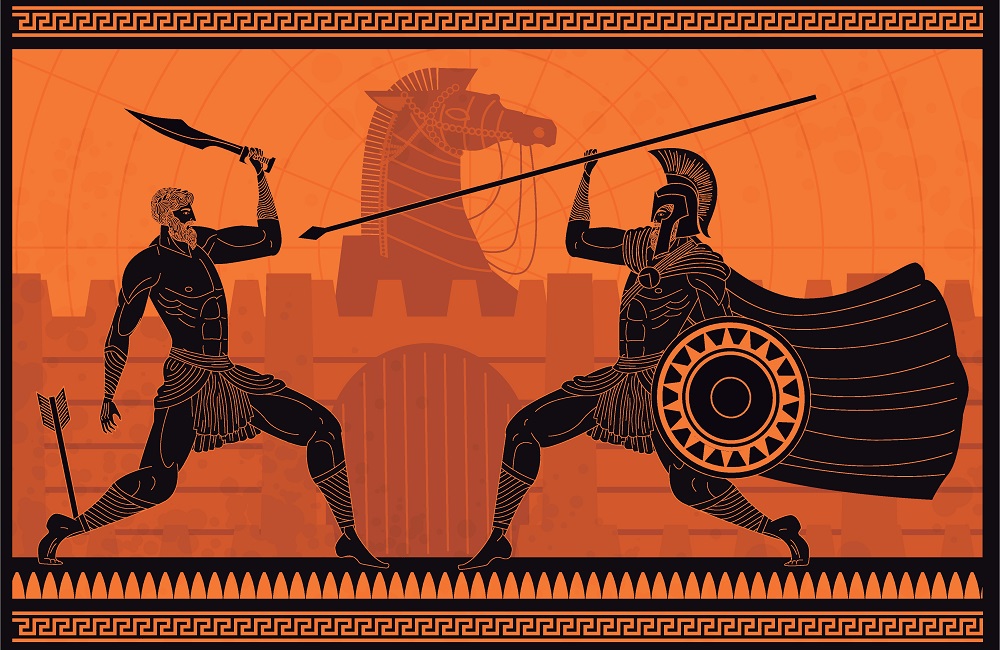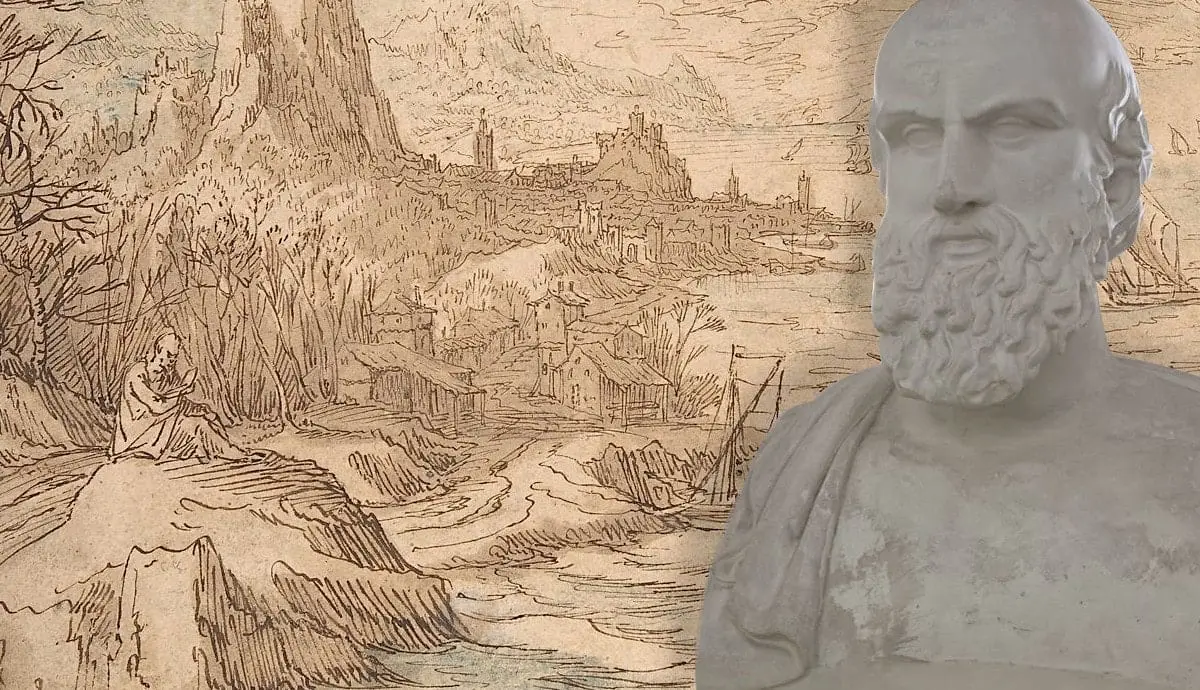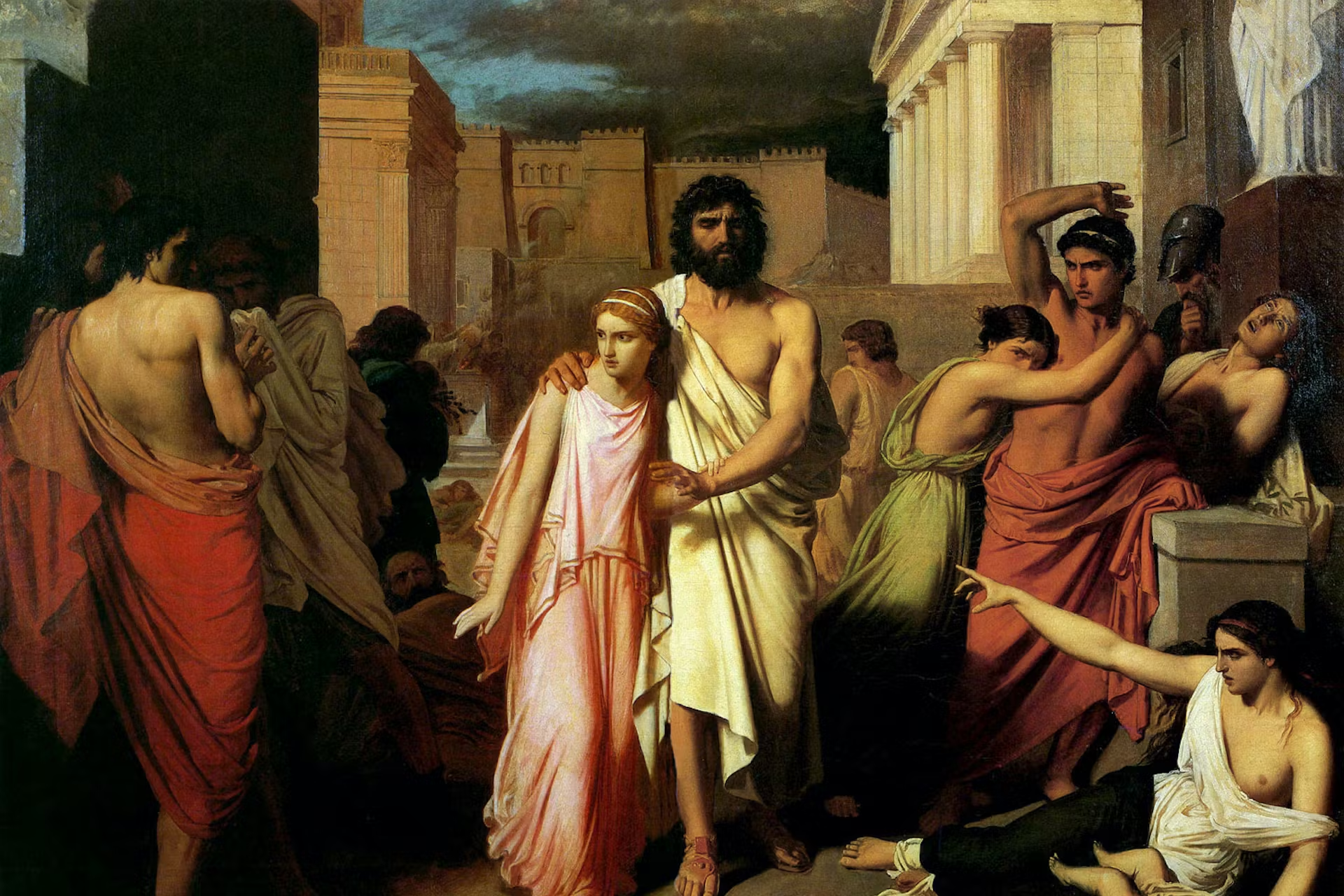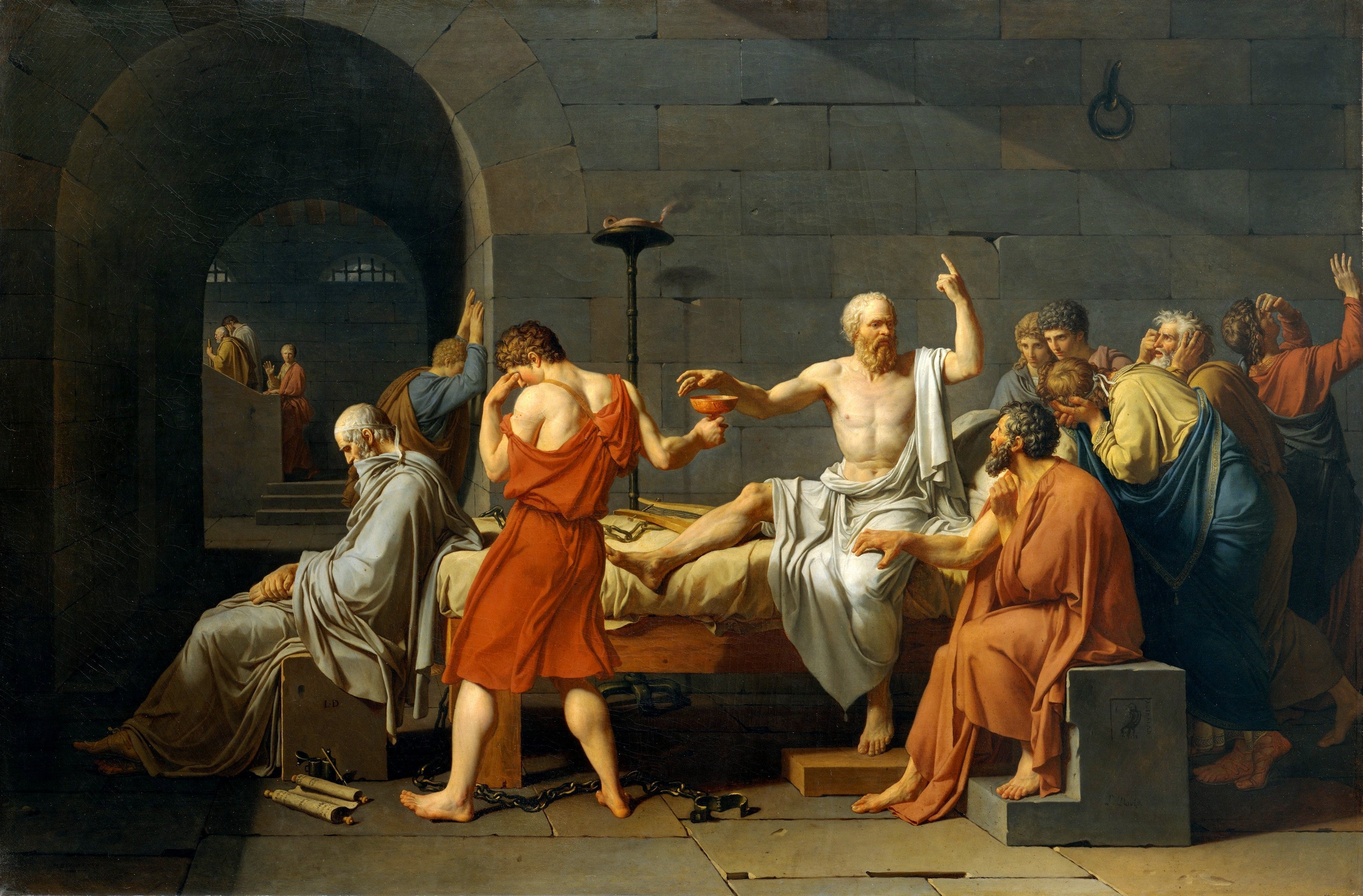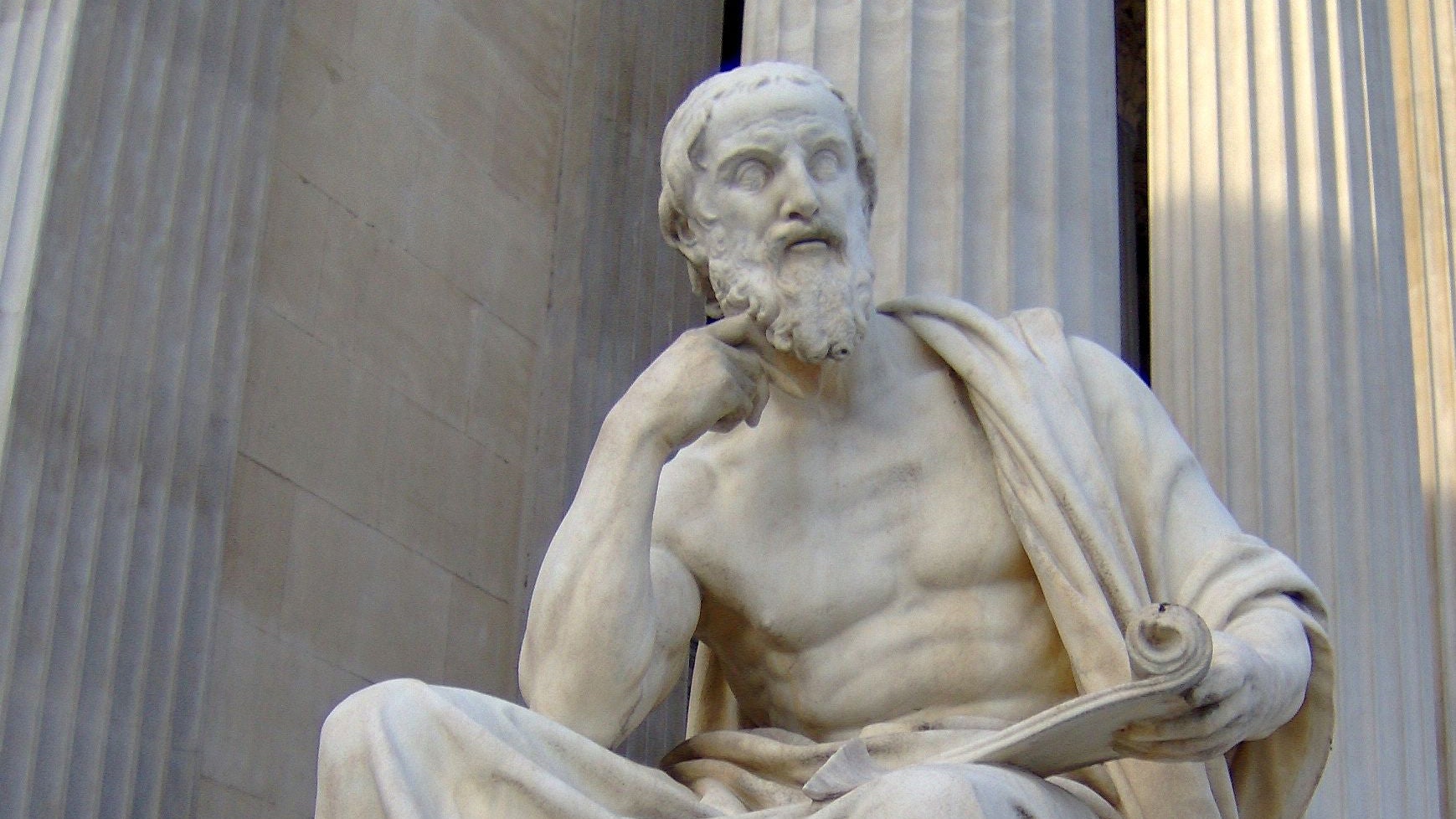Greek Literature - A Timeless Tapestry Of Myth, Tragedy, And Epic
Greek literaturestands as a monumental testament to the intellectual and artistic prowess of ancient Greece. Spanning from the archaic period to the Hellenistic era, Greek literature encompasses a diverse range of genres, including epic poetry, tragedy, comedy, and philosophical discourse. This literary heritage has had a profound and enduring influence on Western thought and storytelling.
The Epic Poetry Of Homer - A Mythic Odyssey
The Iliad - A Tapestry Of War And Heroism
The crowning jewel of ancient Greek literature, "The Iliad" by Homer, transcends time to immerse readers in the tumultuous world of the Trojan War. Set against the backdrop of a legendary conflict, this epic poem unfolds with an intensity that captures the very essence of heroism, fate, and the capricious wrath of the gods.
Heroism Amidst Chaos
At its core, "The Iliad" is a celebration and exploration of heroism. The poem introduces us to characters like Achilles, Hector, and Ajax, whose valor and flaws intertwine to paint a complex picture of the human condition. As the war rages on, Homer skillfully delves into the psyche of these heroes, laying bare their vulnerabilities and showcasing the emotional toll exacted by the relentless pursuit of glory.
Fate And The Divine
Woven into the fabric of "The Iliad" is the omnipresent thread of fate. The characters grapple with a destiny that is both predetermined and shaped by their choices. The interference of the gods adds a divine layer to the narrative, influencing the course of events and emphasizing the fragile balance between mortal agency and the whims of the divine.
The Odyssey - Navigating The Seas Of Adventure And Wisdom
Following the echoes of "The Iliad," Homer guides us through another epic journey in "The Odyssey." This monumental work takes readers on an odyssey of their own, steering through the uncharted waters of adventure, wit, and the resilience of the human spirit.
The Cunning Of Odysseus
"The Odyssey" unfolds as Odysseus, the wily hero of the Trojan War, faces a myriad of challenges on his homeward voyage. The poem showcases not only his physical prowess but also his intellect and resourcefulness. From the seductive temptations of the Sirens to the cyclopean challenges presented by Polyphemus, each episode in Odysseus' journey becomes a testament to the power of cunning and strategic thinking.
The Human Experience - Trials And Triumphs
Homer, with his poetic mastery, breathes life into the challenges faced by Odysseus. Through the encounters with mythical creatures, the sorrow of separation, and the joy of homecoming, "The Odyssey" becomes a universal exploration of the human experience. It resonates with readers across cultures and ages, inviting them to reflect on their own trials and triumphs in the grand tapestry of existence.
Tragedy - A Triumvirate Of Greek Masters
Aeschylus - Pioneering The Tragic Trilogy
The Father Of Tragedy
In the realm of Greek tragedy, Aeschylus stands as a colossal figure, often revered as the "Father of Tragedy." His contributions to the art form are monumental, introducing the groundbreaking concept of the tragic trilogy. Aeschylus elevated drama to new heights, infusing it with profound philosophical inquiries and an unyielding exploration of the complexities of human nature.
Exploring Justice And Destiny
Aeschylus' masterpieces, such as "Prometheus Bound" and the "Oresteia," serve as enduring testaments to his genius. "Prometheus Bound" delves into the timeless struggle between gods and mortals, raising poignant questions about justice and the consequences of defying divine authority. Meanwhile, the "Oresteia," a trilogy comprising "Agamemnon," "The Libation Bearers," and "The Eumenides," intricately weaves a narrative that explores the intricacies of destiny, revenge, and the transformative power of justice.
Sophocles - Morality, Fate, And The Human Condition
Oedipus Rex And Antigone - Timeless Reflections
Sophocles, another luminary in the tragic tradition, ventured into the depths of human morality and the inexorable consequences of fate. "Oedipus Rex" and "Antigone" emerge as timeless masterpieces, unraveling the intricate tapestry of fate, morality, and the profound repercussions of human actions.
Fate's Cruel Irony In Oedipus Rex
In "Oedipus Rex," Sophocles presents the tragic tale of Oedipus, a king fated to unknowingly commit patricide and incest. The play is a poignant exploration of the inexorable grip of destiny and the ironies it weaves into the fabric of human existence. Oedipus's relentless pursuit of truth, coupled with his unwitting entanglement in the threads of fate, renders a powerful commentary on the complexities of free will and cosmic inevitability.
Antigone's Defiance And The Clash Of Morality
In "Antigone," Sophocles navigates the clash between individual morality and the dictates of the state. Antigone's unwavering commitment to bury her brother, in defiance of a royal decree, unveils a profound exploration of ethics and the consequences of standing up for one's principles. The play resonates as a timeless reflection on the tension between personal conscience and societal norms.
Euripides - Redefining Tragedy With Innovation
The Innovator
Euripides, a trailblazer in the world of Greek tragedy, distinguished himself with an innovative approach that challenged conventional notions of heroes and gods. His works, including "Medea" and "The Bacchae," are marked by a psychological depth that unveils the inherent flaws within the human condition.
Medea's Tragic Complexity
In "Medea," Euripides crafts a narrative that transcends traditional notions of villainy. The play explores the darker facets of human emotion, as Medea's actions, driven by betrayal and despair, force audiences to confront the complex interplay of love, revenge, and the consequences of unchecked passion. Euripides, in his portrayal of Medea, challenges audiences to grapple with the uncomfortable truths of the human psyche.
The Bacchae - Unmasking Human Hubris
"The Bacchae" by Euripides serves as a striking testament to the playwright's innovative spirit. This tragic masterpiece, seamlessly intertwining myth and reality, meticulously examines the perilous repercussions of human hubris when confronted with divine forces. Through the lens of Dionysus and the ensuing chaos, Euripides compels the audience to reflect on the delicate equilibrium between human aspirations and the constraints imposed by the divine. For a deeper exploration of Greek culture and language, visit Greeklish.net.
Philosophical Prose - Illuminating Truths With Plato And Aristotle
Plato's Dialogues - A Philosophical Tapestry
Venturing Beyond Poetry And Drama
As Greek literature evolves into the realm of philosophical discourse, Plato emerges as a luminary whose dialogues transcend time. Among his profound works, "The Republic" and "The Symposium" stand as foundational texts, weaving intricate narratives that delve into the very fabric of reality, justice, and the conception of an ideal state.
Exploring The Nature Of Reality
In "The Republic," Plato employs the dialogue form to unravel the nature of reality through the allegory of the cave. Through the engaging conversations among characters like Socrates, Glaucon, and Thrasymachus, Plato explores the essence of justice, the structure of the soul, and the establishment of an ideal society. The Socratic method, a cornerstone of philosophical inquiry, comes alive in these dialogues, challenging readers to question assumptions and seek deeper truths.
Love And Wisdom In "The Symposium"
"The Symposium" takes a different philosophical journey, focusing on the theme of love. Plato orchestrates a symposium (a banquet) where notable figures, including Socrates and Aristophanes, expound on the nature of love and desire. Through this intricate dialogue, Plato examines different facets of love, from the physical to the metaphysical, offering profound insights into the complexities of human emotion and connection.
Aristotle's Poetics - Blueprint For Literary Mastery
Seminal Work In Literary Theory
Aristotle, a towering figure in ancient Greek philosophy, leaves an indelible mark on the world of literature with his magnum opus, "Poetics." This seminal work in literary theory serves as a guiding light for playwrights and storytellers, outlining principles that have withstood the test of centuries.
Elements Of Tragedy Unveiled
In "Poetics," Aristotle meticulously dissects the elements of tragedy, dissecting its structure and offering a blueprint for creating compelling narratives. From the concept of catharsis to the importance of plot, character, and spectacle, Aristotle's insights provide a comprehensive framework for understanding and constructing powerful works of drama.
Enduring Influence On Storytelling
Aristotle's "Poetics" extends its influence far beyond its historical context, shaping the trajectory of narrative arts for generations. Playwrights, filmmakers, and novelists continue to draw inspiration from Aristotle's timeless principles, acknowledging the enduring relevance of his insights into the essence of storytelling.
Unveiling The Philosophical Epoch
The Fourth Century's Crowning Glory
In the annals of history, the fourth century emerges as a golden age for philosophy, standing as a testament to the intellectual brilliance of ancient Greece. Among the myriad Greek philosophers who graced this era, three luminaries shine with unparalleled brilliance: Socrates, Plato, and Aristotle.
Socrates - The Provocateur Of Wisdom
Philosophy Incarnate
Socrates, the indomitable gadfly of Athens, remains an enigmatic figure whose method of dialectical questioning laid the foundation for Western philosophical inquiry. Disinterested in written records, his legacy endures through the accounts of disciples like Plato. Socrates' relentless pursuit of truth and virtue, coupled with his famous assertion that "an unexamined life is not worth living," leaves an indelible mark on the philosophical landscape.
Plato - The Architect Of Ideas
Dialogues Of Illumination
Plato, the revered student of Socrates, emerges as the architect of philosophical ideas. His dialogues, such as "The Republic" and "The Symposium," are not mere literary creations but profound inquiries into the nature of reality, justice, and the ideal state. Through Socratic dialogue, Plato introduces readers to the intricacies of philosophical exploration, sparking a journey that transcends time.
Aristotle - The Systematic Sage
Organizing The Cosmos Of Knowledge
Aristotle, the intellectual giant mentored by Plato, brings systematic rigor to philosophy. His works encompass a vast array of disciplines, from metaphysics and ethics to politics and biology. In "Nicomachean Ethics" and "Politics," Aristotle meticulously dissects the foundations of virtue and governance, leaving an indelible imprint on moral philosophy and political theory.
Enduring Legacy
The Triumvirate's Impact On Western Thought
The legacies of Socrates, Plato, and Aristotle extend far beyond the fourth century, shaping the trajectory of Western thought for millennia. Their collective influence permeates philosophy, science, ethics, and governance. The Socratic method, Platonic ideals, and Aristotelian logic stand as enduring pillars, guiding subsequent generations in the relentless pursuit of wisdom.
The Pioneers Of History
Greece's Classical Age - A Crucible Of Ideas
In the crucible of Greece's classical age, where ideas and intellect flourished, two luminaries emerged as pioneers in the nascent field of historiography: Herodotus and Thucydides. Their contributions not only laid the foundations for historical writing but also shaped the trajectory of how societies recorded and understood their past.
Herodotus - The Father Of History
The Inquisitive Chronicler
Herodotus, often hailed as the "Father of History," embarked on a journey to document the events leading to the Greco-Persian Wars. His magnum opus, "Histories," weaves a captivating narrative that extends far beyond mere chronicles of battles and conquests. Herodotus, characterized by his insatiable curiosity, delves into the customs, cultures, and geography of the known world. His method of inquiry, though at times embellished with folklore and anecdotes, laid the groundwork for a more comprehensive approach to historical documentation.
Inclusive Narratives - Beyond Wars And Borders
What sets Herodotus apart is his inclusivity. In "Histories," he paints a broad canvas, encompassing diverse perspectives and narratives. From the intricacies of Egyptian rituals to the customs of Scythian nomads, Herodotus provides a holistic view of the ancient world. His approach underscores the interconnectedness of humanity, establishing a precedent for historians to embrace a more cosmopolitan perspective.
Thucydides - The Scientific Historian
A Rigorous Approach To Reality
In contrast to Herodotus, Thucydides approaches history with a more analytical and systematic lens. Often regarded as the "scientific historian," Thucydides authored "History of the Peloponnesian War," a meticulous account of the conflict between Athens and Sparta. Thucydides' methodology is characterized by a commitment to objectivity and a rejection of mythical explanations. He strives for an empirical understanding of events, emphasizing the role of human nature and the pursuit of power in shaping historical outcomes.
Political Realism - Lessons For Posterity
Thucydides' work goes beyond mere narration; it serves as a profound exploration of political realism. His acute observations on power dynamics, the nature of alliances, and the impact of human behavior on historical events lay the groundwork for future political and military strategists. Thucydides' emphasis on the universality of human motivations and his commitment to extracting lessons from the past elevate him to a seminal figure in historiography.
Greek Literature - People Also Ask
What Is The Most Famous Greek Literature?
Determining the single most famous work of Greek literature is subjective, as it depends on individual preferences and academic perspectives. However, some works are universally acknowledged as classics. Among them:
- Homer's Epics:"The Iliad" and "The Odyssey" are foundational works that have had a profound impact on Western literature.
- Sophocles' Tragedies:"Oedipus Rex" and "Antigone" are iconic tragedies that explore fundamental aspects of the human condition.
- Plato's Dialogues:Works such as "The Republic" and "The Symposium" are influential in philosophy and literature.
- Aristotle's "Poetics":This treatise on drama remains a cornerstone of literary theory.
What Is The Greek Literature?
Greek literature encompasses the body of writings produced by the ancient Greeks, spanning from the archaic period to the Hellenistic era. It includes various genres such as epic poetry, tragedy, comedy, philosophy, historical writings, and more. Key contributors to Greek literature include Homer, Aeschylus, Sophocles, Euripides, Plato, and Aristotle. The literature reflects the cultural, philosophical, and artistic achievements of ancient Greek civilization.
What Does Greek Literature Teach Us?
Greek literature offers profound insights into human nature, morality, and the complexities of existence. It teaches us:
- Ethical Dilemmas:Masterpieces such as those crafted by Sophocles delve into profound moral quandaries and intricately examine the repercussions of human actions. For a deeper understanding of the complexities inherent in these tragedies, explore the insights presented in the article on why offshore betting is thrivingat Washington Independent.
- Philosophical Inquiry:Dialogues by Plato and Aristotle's works provide foundational concepts in ethics, politics, and metaphysics.
- Heroism and Hubris:Epic poems like "The Iliad" depict heroism, while tragedies often caution against excessive pride or hubris.
- Cultural Values:Greek literature reflects the values and beliefs of ancient Greek society, including notions of honor, democracy, and the relationship between humans and gods.
- The Power of Storytelling:The narrative brilliance in works like Homer's epics emphasizes the enduring power of storytelling to convey complex ideas and emotions.
- Critical Thinking:Philosophical dialogues encourage critical thinking and the examination of fundamental questions about reality, justice, and the ideal state.
Conclusion
Greek literature is a multifaceted jewel that continues to sparkle through the corridors of time. Its influence echoes in the works of Shakespeare, Dante, and beyond, shaping the very foundations of Western literature. From the tragic laments of Aeschylus to the comedic brilliance of Aristophanes, Greek literature remains an eternal wellspring of inspiration and contemplation.
